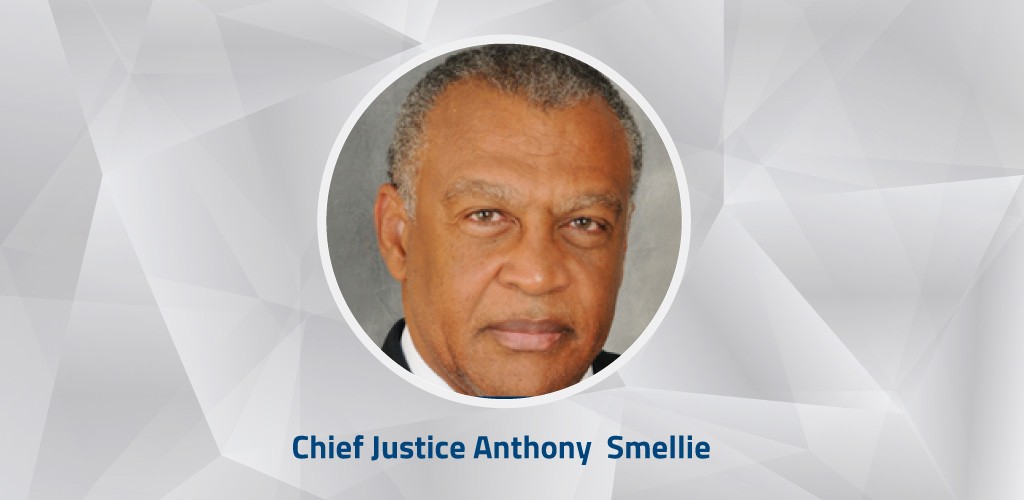Cayman Chief Justice references various KRyS decisions in his Address to INSOL Colloquium

A recent press release from the Cayman Islands Judicial Administration reported on Chief Justice Anthony Smellie’s presentation at the recent INSOL event in San Francisco.
In his address, the Chief Justice refers to several cases including KRyS Global’s Fairfield Sentry and China Medical Technologies Ltd. as examples of cross-border insolvency cases where choice of venue was of paramount importance.
Read the full press release from the CIJA below:
Chief Justice Addresses Choice of Venue for Insolvency Proceedings:
The Investment Fund Perspective
Cayman Islands laws and administrative arrangements are sufficiently flexible to facilitate, where appropriate and applicable, the domestic resolution of insolvency proceedings or the rendering of assistance for the resolution of such proceedings before foreign courts. This is the view of Chief Justice Anthony Smellie who recently spoke on the investment fund perspective on “forum shopping” to an international audience of fellow judges and related professionals.
An overview of this legal and judicial progression was detailed in his paper on the topic of “Forum Shopping is Bad; Choice of Forum is Good?” at an INSOL San Francisco judicial colloquium, 21 to 22 March. Forum Shopping is the informal name given to the practice of some litigants of having their cases heard in the court thought most likely to provide a favourable outcome.
Cayman’s Chief Justice was speaking at the Eleventh Joint Multinational Judicial Colloquium on Cross-Border Insolvency, part of a larger INSOL conference. The annual judicial colloquium, at which the Chief Justice has been a regular presenter, is an educational session open only to judges, judicial administrators, and senior civil servants from relevant government ministries globally.
The aim of the educational session was to prepare participants to understand developments in the handling of cross-border insolvency cases where there are assets in more than one jurisdiction. This is an increasing phenomenon with the growth of cross-border commerce.
In his presentation, the Chief Justice allowed that choice of forum or forum shopping is permissible essentially where it results in preserving value for shareholders and maximising returns for investors and creditors.
“The choice of forum is important to the investors’ decision to invest and reflects their expectation that [in the case of the Cayman Islands] Cayman Law will apply to the liquidation of their investments if things go wrong.”
However, the Chief Justice noted that forum shopping was unacceptable where the intent involves fraud or abuse of process.
Underpinning his discussion is the fact that the UNCITRAL (UN Convention on International Trade Law) Model Law, now widely adopted, is designed to allow courts of various jurisdictions to cooperate with each other in resolving cross-border insolvency cases, even while seeking to prevent improper forum shopping.
Another method of achieving cooperation and coordination between courts — one that has been successfully employed by the Cayman courts with foreign jurisdictions — is “Cross-Border Insolvency Agreements.” The Chief Justice said that the “landmark Pooling Agreement between the three major BCCI banking companies in 1992 still serves as a paradigm for cross-border cooperation.”
As a result of these mechanisms, insolvency judges are today well aware of the “flexibility and discretion” they hold in cooperating with foreign courts or foreign representatives.
Detailing this range of provisions, the Chief Justice said that many countries had also recognised from as far back as the 1990s that “there should be at least the minimal legislative underpinnings … to clarify and ensure the judges’ jurisdiction to provide cross-border cooperation.” He detailed for attendees the relevant provisions in the Cayman Islands Companies Law.
In addition, the Chief Justice pointed to the common law position: “… the common law power is alive and well and is available to be called upon in many circumstances.” This includes the power “to recognise the proper choice or change of forum, as well as, in the appropriate case, to disapprove or disallow improper forum shopping.”
The colloquium at which the Chief Justice spoke was jointly sponsored by INSOL International, UNCITRAL (The UN Commission on International Trade Law) and the World Bank. This was the fifth time the World Bank had joined with INSOL International and UNCITRAL, which have jointly sponsored these colloquia since 1995.
INSOL is a world-wide federation of national associations for judges, accountants, lawyers and other insolvency professionals who specialize in corporate turnaround and insolvency, and is a global accrediting body for insolvency professionals. Supporting INSOL’s work is the Group of Thirty-Six, “some of the most prominent and influential firms within the insolvency and turnaround profession,” noted organisers, adding: “The aim of the Group of Thirty-Six is to work with INSOL to develop best practice guidelines to enhance the ability of practitioners globally to save businesses throughout the world.”
Click here to read Chief Justice’s Presentation at San Francisco INSOL Judicial Colloquium
